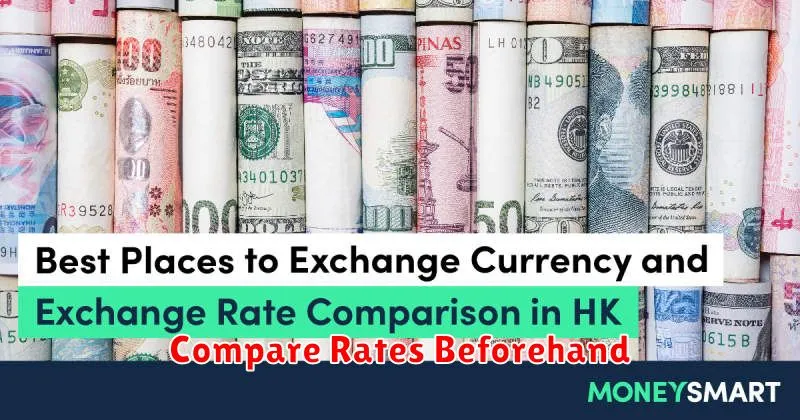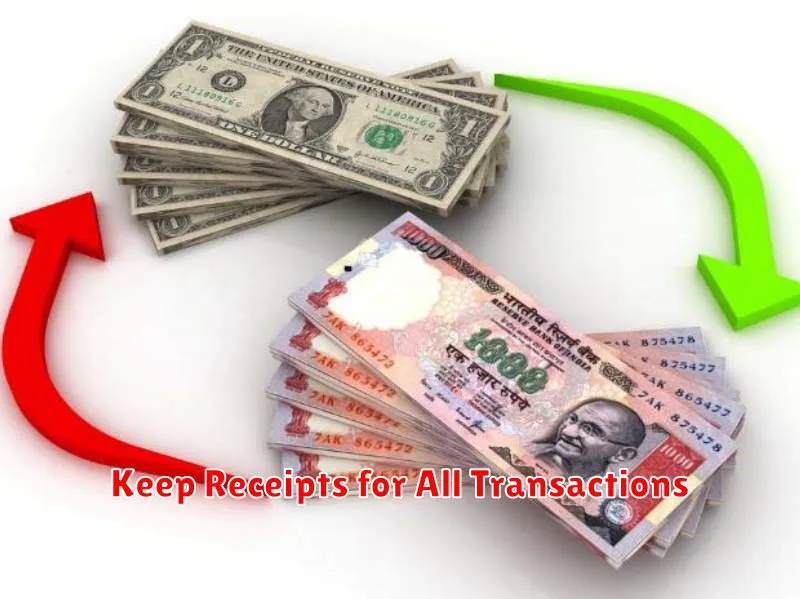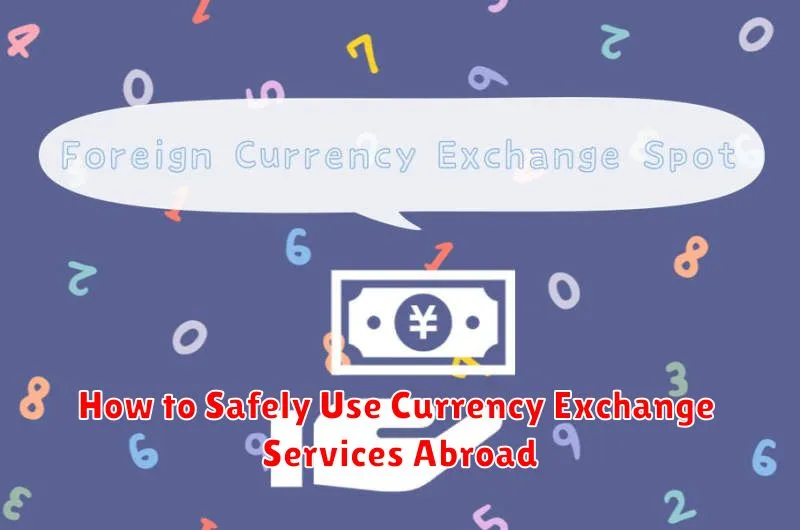Traveling abroad often necessitates using currency exchange services. Understanding how to safely navigate these services is crucial for protecting your finances and ensuring a smooth trip. This article will provide essential tips and insights on how to use currency exchange services abroad effectively and securely, minimizing risks and maximizing value for your money. We’ll cover everything from identifying reputable money exchangers to understanding exchange rates and avoiding common scams, empowering you to make informed decisions when exchanging currency in a foreign country.
Whether you’re a seasoned traveler or planning your first international adventure, knowing how to safely use currency exchange services is paramount. From understanding commission fees and dynamic currency conversion to recognizing counterfeit currency and protecting yourself from fraudulent activities, this guide will equip you with the knowledge and tools necessary to confidently manage your foreign currency exchange needs while traveling abroad. Learn how to choose the best currency exchange service for your specific needs and avoid costly mistakes that can impact your travel budget.
Exchange Money at Trusted Institutions
When exchanging currency abroad, prioritize safety and favorable exchange rates by using reputable institutions. Banks are generally a reliable choice, offering competitive rates and secure transactions. Many international banks have branches worldwide, making access convenient for travelers.
Authorized exchange bureaus located in airports, hotels, or tourist areas are also viable options. However, exercise caution and compare rates before committing to a transaction. Some bureaus might advertise seemingly attractive rates but include hidden fees or commissions.
Avoid exchanging money with street vendors or unofficial money changers. These individuals may offer tempting deals, but the risks of receiving counterfeit currency or being scammed are significantly higher. Prioritizing established institutions provides peace of mind and protects your finances while traveling.
Compare Rates Beforehand

Before you even leave for your trip, research the current exchange rates. Familiarize yourself with the general range so you can identify a fair deal when you see one. This can be easily done online through various financial websites or currency converter apps.
Compare the exchange rates offered by different providers at your destination. This includes banks, exchange bureaus, and even hotels. Be aware that airports and hotels often offer less favorable rates due to convenience. Look for providers that offer rates closest to the mid-market rate, which is the midpoint between the buy and sell rates of two currencies.
Consider using a prepaid travel card or checking with your local bank about their foreign transaction fees. These can often offer more competitive exchange rates than exchanging cash upon arrival.
Count Cash Before Leaving the Counter
Once the currency exchange transaction is complete, do not leave the counter until you have personally counted the money you received. This simple step is crucial for several reasons.
First, it helps prevent misunderstandings. While rare, errors can happen. Counting your cash immediately allows you to address any discrepancies before leaving the exchange bureau. It’s much easier to rectify an issue on the spot than after you’ve departed.
Second, counting your money in front of the teller provides a level of transparency and security. It ensures both parties are aware of the exact amount exchanged. This can be particularly important in unfamiliar environments or when dealing with large sums of money.
Finally, counting your money at the counter helps you familiarize yourself with the local currency. This is especially helpful when traveling to a country with a vastly different currency system. It allows you to begin understanding the denominations and their relative values.
Keep Receipts for All Transactions

Maintaining accurate records of your currency exchanges is crucial for several reasons. Always obtain and retain a receipt for each transaction. This seemingly simple act provides several important benefits. Receipts serve as proof of the exchange rate you received, the amount of local currency disbursed, and any fees charged. This information is essential for budgeting and tracking expenses during your trip.
Furthermore, receipts are invaluable if discrepancies arise or if you need to reconcile your spending upon returning home. They offer a tangible record that can help resolve any potential issues with your financial institution. Should you need to file a dispute or claim regarding a transaction, the receipt acts as critical supporting documentation.
Organize your receipts systematically. Consider using a dedicated envelope or compartment in your wallet. This practice will ensure they remain readily accessible throughout your travels and readily available when you need them.
Avoid Exchange on the Street
While tempting due to their often-advertised favorable rates, street exchange should be avoided entirely. These unofficial exchanges are unregulated and carry significant risks. Counterfeit currency is a common problem, and you could be left with worthless bills. Furthermore, these exchanges are often hubs for scams, where you might be shortchanged or distracted during the transaction, resulting in a loss of money.
Security is another major concern. Street exchanges can attract criminal activity, making you a target for theft. Even seemingly harmless transactions can quickly turn dangerous. Sticking to reputable, established exchange services greatly reduces these risks and ensures a safer currency exchange experience.
You have no legal recourse if something goes wrong in a street exchange. Unlike authorized providers, there’s no regulatory body to file complaints with or mechanisms to recoup your losses. This leaves you vulnerable and with little option for resolution in case of fraud or discrepancies.
Use ATMs Linked to Banks
Using ATMs affiliated directly with established banks offers enhanced security when accessing funds abroad. These machines are typically located within or adjacent to the bank branch, providing a more secure environment compared to standalone ATMs in less supervised areas. Bank-linked ATMs often have enhanced surveillance and are less susceptible to tampering.
Choose ATMs inside bank lobbies whenever possible. This provides an extra layer of security and protection from potential scams or unauthorized access. If you must use an ATM outside of banking hours, prioritize well-lit and secure locations.
Be wary of ATMs in isolated locations or those showing signs of tampering. Report any suspicious activity immediately to the bank and local authorities.
Know Local Laws About Currency Limits
Before traveling internationally, it is crucial to research the local laws regarding currency exchange and limits. Many countries have regulations on how much foreign currency you can bring in or take out. Failing to comply with these regulations can result in penalties, including confiscation of funds.
Some countries require you to declare amounts exceeding a specific threshold. For example, you might need to declare if you’re carrying more than US$10,000 or its equivalent in another currency. These declarations typically happen upon arrival or departure. Ignoring these declaration requirements can lead to legal consequences.
Researching these laws beforehand can help you avoid unwanted complications. Official government websites or your country’s embassy in the destination country are excellent sources for accurate information.

